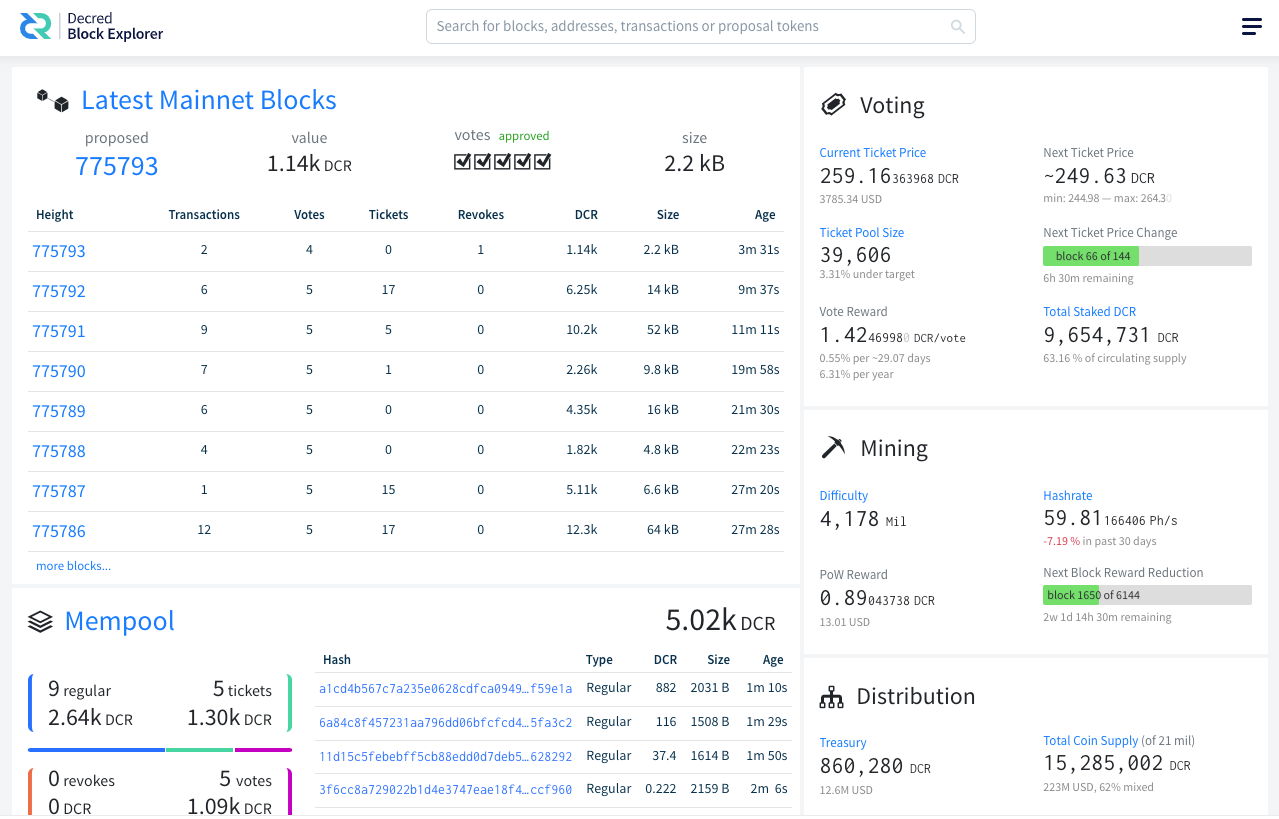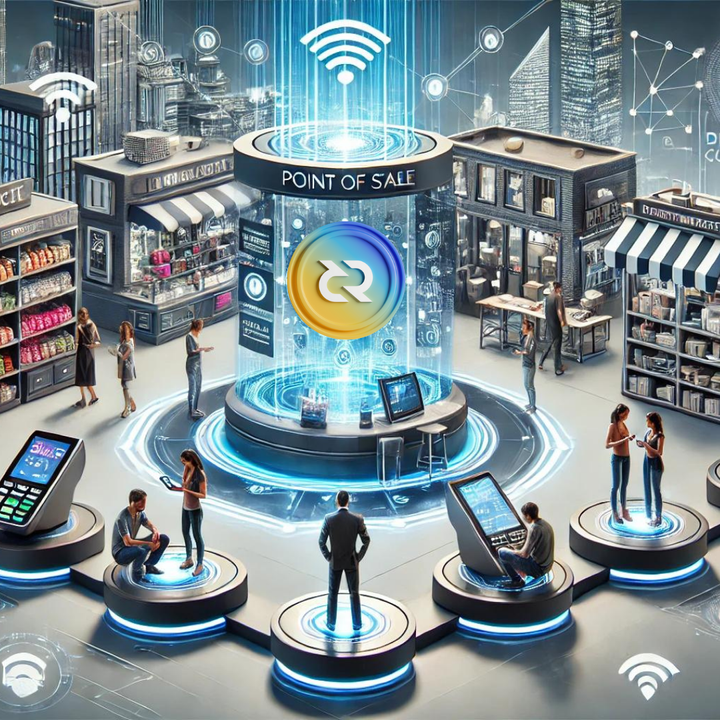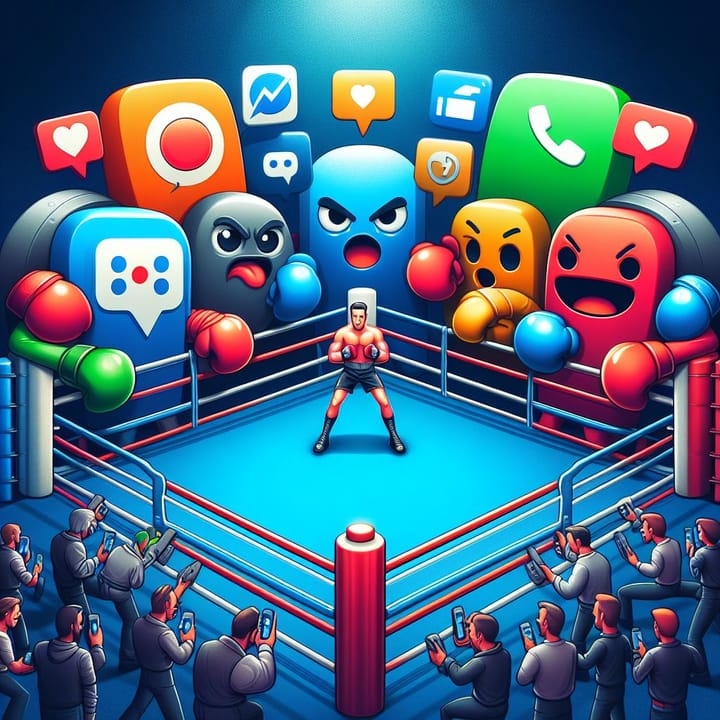Consumable media for a long time was centralized in the hands of a few gatekeepers. They decided who was allowed to spread information, and what type of message could be sent.
The French Revolution was without a doubt one of the most remarkable and studied moments in modern history. This historical event was responsible for starting the fall of European monarchies and universalizing the idea of social rights. During the revolution in 1794, the country's national directory came up with the word "centralisation", while creating a new government structure. Two decades later the word "decentralisation" came into usage. A famous political philosopher of that time, Alexis Tocqueville, stated:
"the French Revolution began with a push towards decentralization...[but became] in the end, an extension of centralization."

Over the past centuries, decentralization ideas have been spread by various thinkers and activists. Those people wanted to confront centralized power structures, promoting a more equitable and participatory society. Some names that they called themselves were "anarchists" and "libertarians". Tocqueville was an advocate of this new concept, who constantly spoke about its importance:
"Decentralization has, not only an administrative value but also a civic dimension since it increases the opportunities for citizens to be interested in public affairs; it makes them get accustomed to using freedom. And from the accumulation of these local, active, persnickety freedoms, is born the most efficient counterweight against the claims of the central government, even if it were supported by an impersonal, collective will."
For a long time, the world was a place without decentralized authority. Monarchs and emperors were the main sources of power, leaving the common folk with no decision power over their lives/countries. Some inventions were responsible for decentralizing power across history, making people think about their respective societies and other areas. Here are some game-changing ideas that helped human societies to decentralize and balance power.
The printing press

Gutenberg developed this invention around the year 1430. Gutenberg's printing press consisted of a flatbed where movable types or characters were arranged. These movable types were nothing more than graphic symbols (letters, numbers, punctuation marks, etc.) molded in lead. A single mold of these types, when inked, could print numerous copies of the same text in a matter of hours. While the manual production of books (known as codices) was incredibly time-consuming, the printing press greatly reduced the time required.
By the early 16th century, the effects of Gutenberg's printing press were already noticeable in the German principalities, particularly when the press popularized critical pamphlets by the reformer Martin Luther. The Protestant Reformation sparked by Luther in 1517 gained significant reception among the literate population of Germany due to the circulation of printed theses and pamphlets. Furthermore, Luther's contribution to the history of reading was closely linked to Gutenberg's press: the translation of the Bible from Latin to German.
Overall the invention of the printing press was responsible for accelerating the dissemination of ideas and knowledge. Before the press, even the most popular books, like the bible, were handwritten and rare. After its invention, books began to be printed by the thousands, and people got access to information only available to the elites. Knowledge is power, decentralized knowledge means more power to the people!
The internet

Consumable media for a long time was centralized in the hands of a few gatekeepers. They decided who was allowed to spread information, and what type of message could be sent. Television and Radio were inventions that changed the lives of millions, but they always were one-way communication devices, with a sender and a receiver.
After the internet, anyone can express their opinion in a network with millions of people. Everyone with a connection has a voice on the internet, being able to judge and be judged. There are still many problems regarding centralization within the internet. Big Tech companies such as Google and Meta control most of it, and can censor content they don’t agree with. Even Though those companies have disproportionate control over online media, the internet is still a decentralization tool. Regular people are able to communicate with people around the globe, sharing experiences and ideas. There are many open source/collaborative initiatives, where individuals can build a project together, even if they have never met in real life.
A good example of an application that goes in the opposite way of big tech’s centralized web is Bison Relay. A new take on social media was built by the Decred project. Bison Relay is a communication platform that gives users sovereignty with absolute freedom of expression and custody of personal information. The platform offers “zero knowledge communications” with end-to-end encryption that ensures only the intended recipients see the content of messages. It’s also censorship resistant. Server operators can’t see what users share or which chats they participate in, protecting them from censorship. Learn more about it here.
Blockchain/Cryptocurrencies

You must have heard this history a hundred times, but we need to tell it again! Blockchain technology began with the development of Bitcoin, the first decentralized cryptocurrency. The exact origins of Bitcoin and its creator, Satoshi Nakamoto, remain a big mystery, but its contribution to a more decentralized society is clear. Blockchain was designed to be a secure network for transparent peer-to-peer financial transactions, solving the problem of double-spending without the need for a central authority. The traditional financial system was maybe the hardest institution to confront since giant banks and stock brokers ruled financial transactions. Since the creation of Bitcoin’s blockchain, numerous other platforms and cryptocurrencies were developed, each with its unique features and use cases.
One project that needs to be highlight is Decred, a noteworthy example of a decentralized crypto project. There are some reasons why Decred is considered a true DAO:
Governance model
Decred employs a hybrid consensus mechanism that combines proof-of-work mining with proof-of-stake voting. Both miners and stakeholders have a voice in the decision-making process. Every stakeholder can vote on proposals on the Politeia platform, deciding on protocol changes, marketing strategies, and development innovations.
Community Engagement
Decred places a strong emphasis on creating an inclusive community. Dialogue and debate are encouraged in the project's official channels on Matrix, Twitter, and Bison Relay. Community members can contribute to the project and get rewards in DCR.
Commitment to Transparency
Decred prioritizes transparency in its decision-making process and overall operations. Every treasury spend is public, and the project's code is open-source, enabling anyone to review and hold the project accountable.

What other initiatives do you consider to be following the right path for decentralization? Leave a comment below!






Comments ()